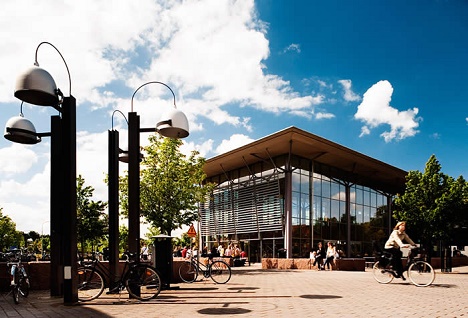More than 80,000 people have applied for asylum in Sweden in the past two months alone, which would be the equivalent of 25 million asylum seekers for the entire EU.
The government, the Migration Board, civil society, the Jobs Authority, and non-profit agencies all play a large role in handling the refugee crisis. But everyone can do their part to help – and Linköping University is proving it by appointing a special coordinator for refugee initiatives.
“This autumn we have received many questions and suggestions, both from employees and students, about what the university can do to contribute,” says Linköping University’s principal Helen Dannetun. “Our assignment is to help spread and take advantage of knowledge, from a democratic perspective and an academic tradition. So in this way we must see what we can do to help.”
Previously student unions and associations have done their best to help, but now the university will also appoint a specific coordinator responsible for organizing the university's initiatives relating to helping refugees. The goal is for the university to take an active role in establishing newcomers in the Swedish society, and utilising the potential and knowledge that refugees can bring to the table.
Linköping University (LiU) has drawn out for areas in which it can help: as an educator for refugees, as an employer for refugees, as a cooperation coordinator, and by driving student engagement in refugee issues.
Per Larsson has been appointed as coordinator.
“Linköping has been involved in many initiatives for several years, for example related to supplemental education,” Larsson says. “But now we will do even more.”
The university already collaborates with the work authority (Arbetsförmedlingen) to help people with foreign degrees to keep studying or get proper certification for working in Sweden. The university also hopes to start special “assignment education programmes”, vocational courses specifically designed for refugees with the goal of preparing them to work in much-needed areas of Swedish society – such as social secretaries, teachers, and healthcare professionals.
The project will be carried out all of 2016 and may be extended.


 Please whitelist us to continue reading.
Please whitelist us to continue reading.